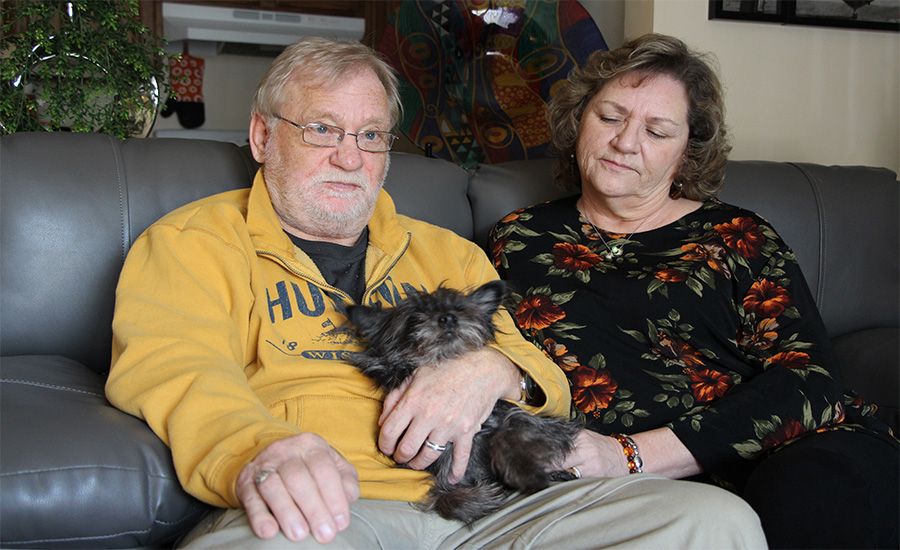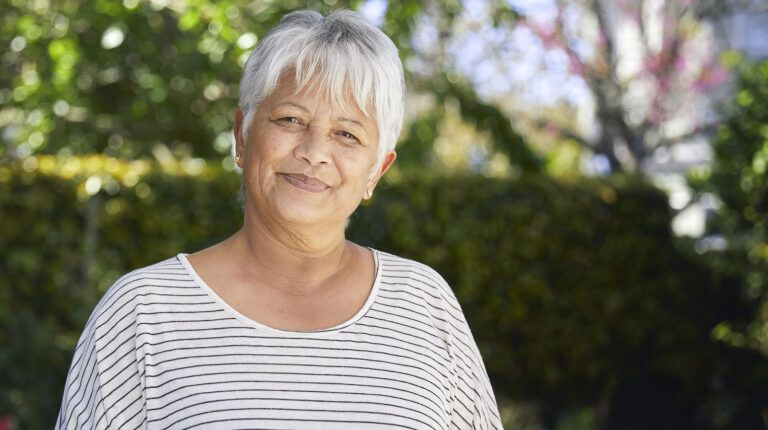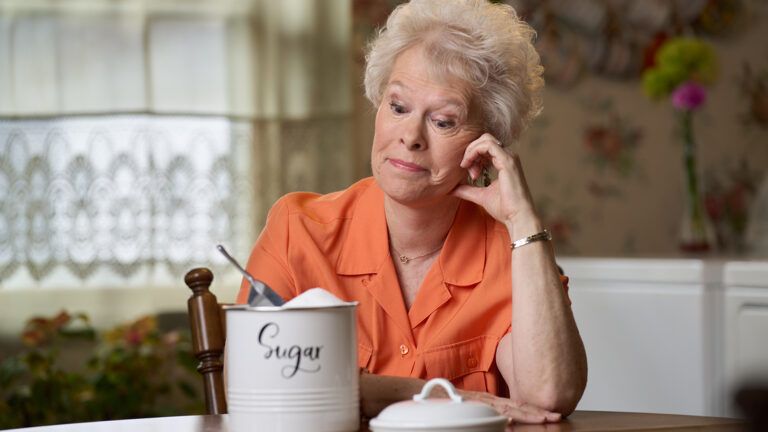Content provided by the Good Samaritan Society.
When NancyJo Borden starts her day, the specter of losing her mind to Alzheimer’s disease haunts her thoughts. She was diagnosed with early-onset Alzheimer’s in 2012 when she was 58.
At any moment, the Woodbury, Minnesota, woman knows she could plunge into darkness and dependency. But with the help of medications, exercise and music, NancyJo remains stable.
“If I can stay like this for any amount of time, I’m happy as a clam,” she says. “I’ll drive him (husband Keith) crazy, but I’ve always driven him crazy.”
“As long as she’s doing good at home, that’s fine,” Keith says. “It has a lot to do with having them (people with dementia) do a lot that they used to do. The more you do for them, the less they will do for themselves.”
Both say they are coming to grips with the disease, silencing the demons of doubt and eventuality—for now.
They bought a boat to recreate some of the fun of yesteryear: cruising the waters of nearby lakes, looking at houses along the shores and getting a lot of sun and fresh air.
NancyJo has found music soothes her . “Music is the best, and water is our Valium,” she says. She still has challenges, including counting money and repeating herself.
“I ask the same question over and over again. I ask him (Keith) and our friends to tell me when I do that. But it’s true that when you get older you forget.”
Some who have Alzheimer’s face confusion and anxiety at sundown, but not NancyJo.
“It’s the afternoon that’s the worst for me. I prefer to do things up until 1 p.m. I get worked up. I can’t control it. But at the same time it’s happening, I know that it’s happening. It’s hard to describe,” she says. “We are pretty quiet in the evening and watch TV.”
They recently hunkered down for 12 seasons, 289 episodes, of NCIS, the television drama involving a Naval crime unit.
An active life
She confronts exercise with vigor. “I do everything too fast – too much, too fast. I’ve always liked rowing because it’s an all-around exercise. I can watch TV if I want. That seems to help. All of my doctors, and the research, says you have to keep active.”
She also swats pickleballs on a court where she lives. “She keeps herself busy with adult coloring books and plays solitaire on her computer,” Keith says. “We are kind of both doing all right.”
One way Keith copes is to busy himself collecting items at auctions, garage sales and second-hand stores and reselling them on eBay. When he hunts for treasures, NancyJo goes with him sometimes.
She also cooks and, “does everything she used to do,” says Keith. Keith and NancyJo continue to learn about Alzheimer’s disease.
NancyJo reads about it and wants to tour a center specializing in care for it. Keith says he is going to join a support group. They believe the best is the here and now.






